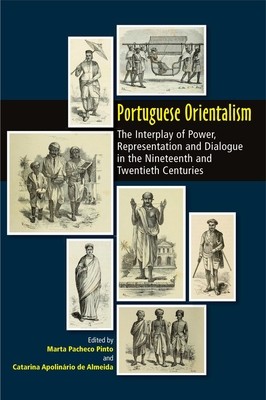
- We will send in 10–14 business days.
- Publisher: Liverpool University Press
- ISBN-10: 1789760542
- ISBN-13: 9781789760545
- Format: 10.9 x 27.2 x 2 cm, hardcover
- Language: English
- SAVE -10% with code: EXTRA
Portuguese Orientalism (e-book) (used book) | bookbook.eu
Reviews
Description
Research on Portuguese orientalism has been mostly centred on the sixteenth and seventeenth centuries and has focused on missionary work and Catholic orientalism. In contrast, reflection on the nineteenth and twentieth centuries is scarce and has relied on individual case studies, notwithstanding the TECOP (Texts and Contexts of Portuguese Orientalism: The International Congresses of Orientalists, 1873-1973) research project. This edited collection is the result of an international forum (www.tecop.letras.ulisboa.pt) hosted by the Centre for Comparative Studies, the University of Lisbon. The editorial aim is to counter the scant attention paid to Portuguese orientalist scholarship, which has been peripheralized within the comparative history of western imperialisms at large and within national orientalisms in particular. Incorporating Portugal into a broader European colonial discourse about the East, and discussing the responses to Portuguese colonial legacies, gives visibility
to the agency of the
EXTRA 10 % discount with code: EXTRA
The promotion ends in 17d.17:19:15
The discount code is valid when purchasing from 10 €. Discounts do not stack.
- Publisher: Liverpool University Press
- ISBN-10: 1789760542
- ISBN-13: 9781789760545
- Format: 10.9 x 27.2 x 2 cm, hardcover
- Language: English English
Research on Portuguese orientalism has been mostly centred on the sixteenth and seventeenth centuries and has focused on missionary work and Catholic orientalism. In contrast, reflection on the nineteenth and twentieth centuries is scarce and has relied on individual case studies, notwithstanding the TECOP (Texts and Contexts of Portuguese Orientalism: The International Congresses of Orientalists, 1873-1973) research project. This edited collection is the result of an international forum (www.tecop.letras.ulisboa.pt) hosted by the Centre for Comparative Studies, the University of Lisbon. The editorial aim is to counter the scant attention paid to Portuguese orientalist scholarship, which has been peripheralized within the comparative history of western imperialisms at large and within national orientalisms in particular. Incorporating Portugal into a broader European colonial discourse about the East, and discussing the responses to Portuguese colonial legacies, gives visibility
to the agency of the


Reviews